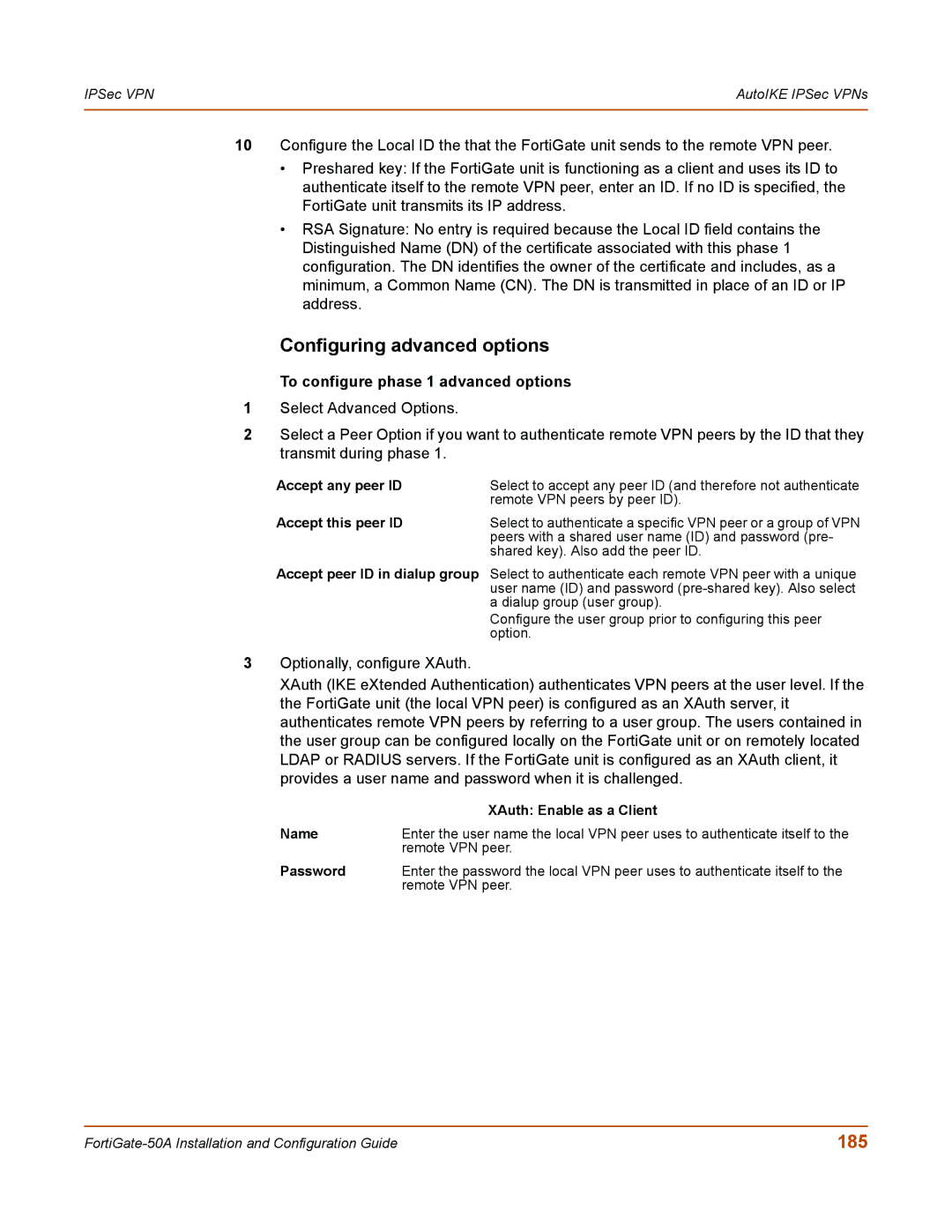IPSec VPN | AutoIKE IPSec VPNs |
|
|
10Configure the Local ID the that the FortiGate unit sends to the remote VPN peer.
•Preshared key: If the FortiGate unit is functioning as a client and uses its ID to authenticate itself to the remote VPN peer, enter an ID. If no ID is specified, the FortiGate unit transmits its IP address.
•RSA Signature: No entry is required because the Local ID field contains the Distinguished Name (DN) of the certificate associated with this phase 1 configuration. The DN identifies the owner of the certificate and includes, as a minimum, a Common Name (CN). The DN is transmitted in place of an ID or IP address.
Configuring advanced options
To configure phase 1 advanced options
1Select Advanced Options.
2Select a Peer Option if you want to authenticate remote VPN peers by the ID that they transmit during phase 1.
Accept any peer ID | Select to accept any peer ID (and therefore not authenticate |
| remote VPN peers by peer ID). |
Accept this peer ID | Select to authenticate a specific VPN peer or a group of VPN |
| peers with a shared user name (ID) and password (pre- |
| shared key). Also add the peer ID. |
Accept peer ID in dialup group Select to authenticate each remote VPN peer with a unique user name (ID) and password
Configure the user group prior to configuring this peer option.
3Optionally, configure XAuth.
XAuth (IKE eXtended Authentication) authenticates VPN peers at the user level. If the the FortiGate unit (the local VPN peer) is configured as an XAuth server, it authenticates remote VPN peers by referring to a user group. The users contained in the user group can be configured locally on the FortiGate unit or on remotely located LDAP or RADIUS servers. If the FortiGate unit is configured as an XAuth client, it provides a user name and password when it is challenged.
| XAuth: Enable as a Client |
Name | Enter the user name the local VPN peer uses to authenticate itself to the |
| remote VPN peer. |
Password | Enter the password the local VPN peer uses to authenticate itself to the |
| remote VPN peer. |
185 |
